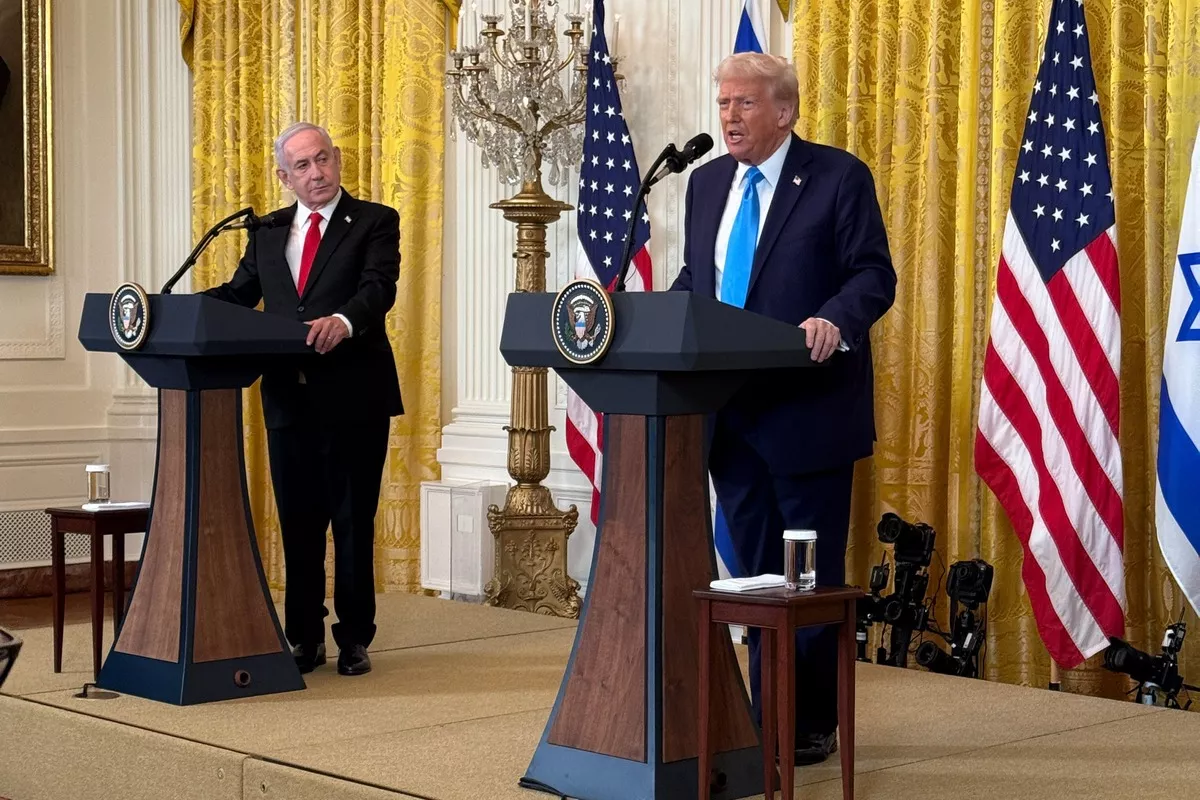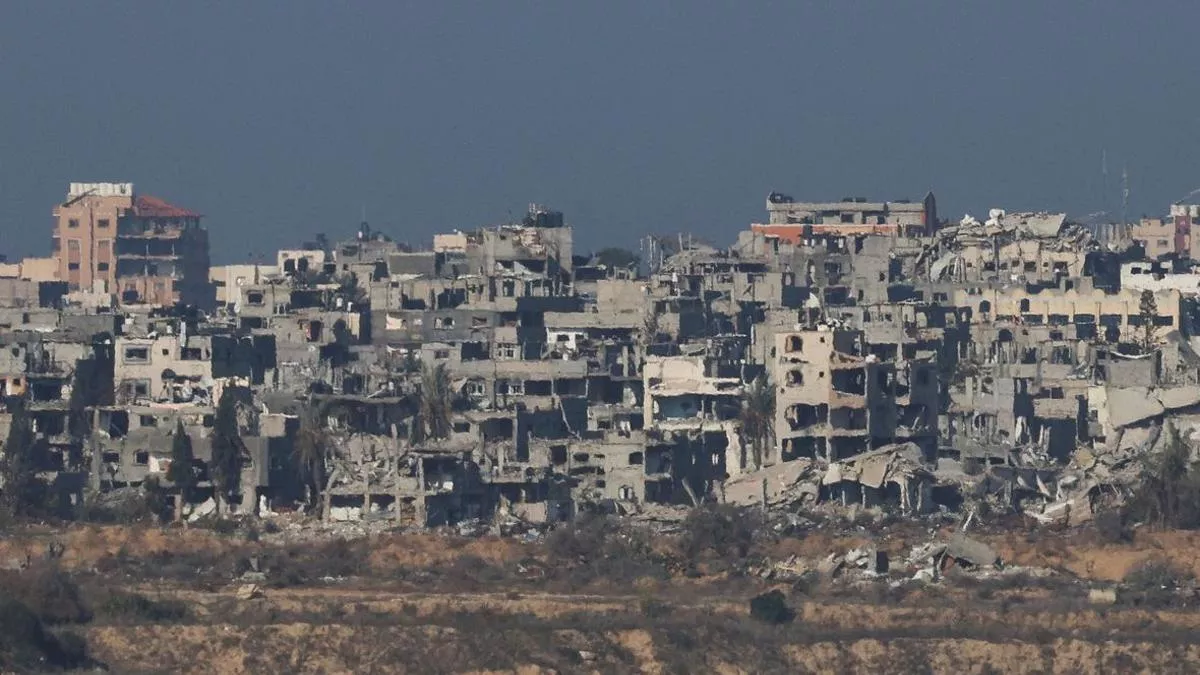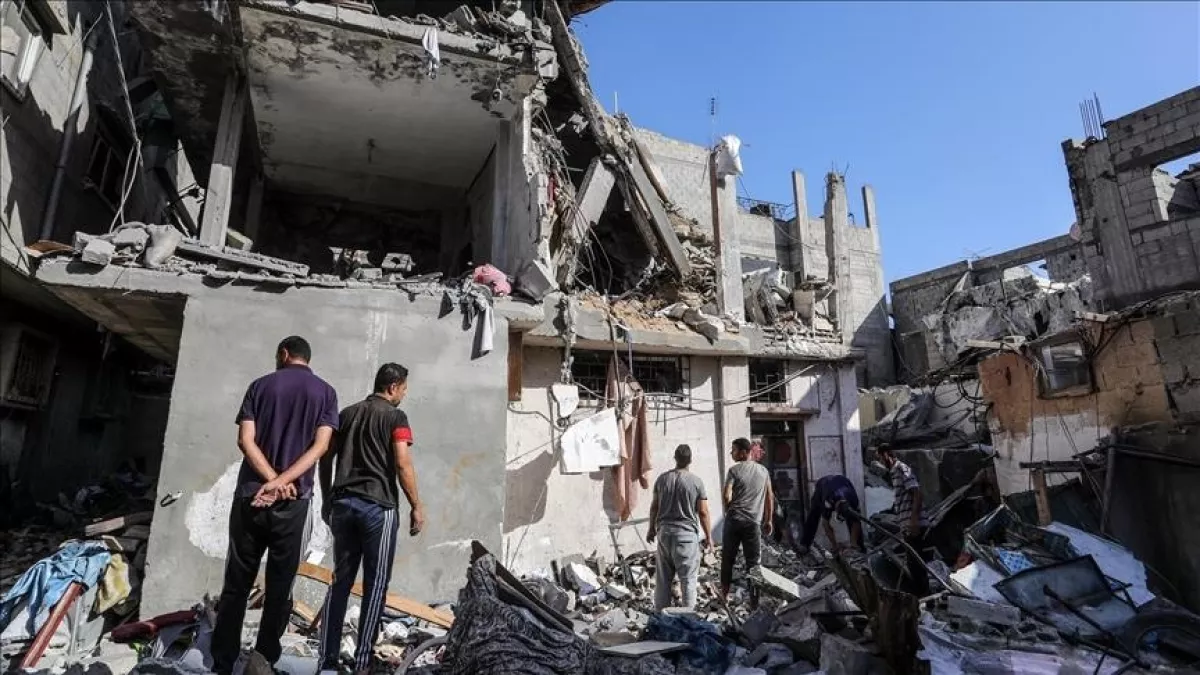Trump's plan and the alternative of Arab countries Middle Eastern deadlock
U.S. President Donald Trump made a strong impression on the Arab world by proposing to relocate 2 million Palestinian Arabs from the Gaza Strip. As of today, there are no signs that any country is willing to accept them, and Washington itself is not rushing to provide green cards for Gaza's residents. Moreover, Palestinians are not eager to relocate voluntarily to refugee camps in the Sinai Desert or Somalia. After all, living in the ruins of civilization, in tents, receiving humanitarian aid, is something they can do at home.
What remains? Expelling them forcibly? This would provoke resistance and a massive outburst of anger in the Middle East, where hundreds of millions of people feel a certain degree of pan-Arab solidarity. For the reasons outlined, Trump's plan is unlikely to be implemented. However, both Benjamin Netanyahu's government and the opposition in Israel have agreed with it. Nonetheless, the plan has already caused tension in the region. For example, because Trump stated: "Palestinians would have no right of return to the Gaza Strip." Though he added that they would have "much better housing," this did little to change the perception of his words.

Trump proposed relocating Palestinians to Jordan and Egypt, and the governments of these countries were horrified. Not only because there are thousands of Hamas militants among Gaza’s residents, who today control most of Gaza (though this is a significant reason), but primarily because they fear the reaction of their own populations. The public would perceive this as an agreement by the governments with a plan that provokes outrage in Arab societies across the Middle East. Since the Arab Spring, the rulers of these countries have had to take public opinion into account.
Therefore, Arab countries developed and recently adopted an alternative plan to Trump’s ideas. Egyptian President Abdel Fattah el-Sisi stated that his proposal was accepted at a summit of regional states in Cairo. The Egyptian plan, which many influential countries have agreed to, allocates $53 billion for the reconstruction of Gaza. Its implementation will prevent the relocation of Palestinians from the enclave. The money is to be provided by the richest country in the region, Saudi Arabia, and other Gulf oil monarchies, while Egyptian companies will take on the task of reconstructing the sector.
As for the governance of Gaza, the Egyptians, according to their statements, have already selected a group of individuals, "technocrats," unaffiliated with Hamas, who will create a committee to manage the sector.
At first glance, the chances of implementing the plan seem promising. Hamas, which has ruled Gaza authoritatively since 2007 (without holding elections), emphasized in its statement that it agrees with Egypt's proposal. It even agreed not to nominate candidates for the committee proposed by Cairo to manage the sector. However, Hamas noted that it would have to approve the tasks, composition, and agenda of the committee, which will govern Gaza under the control of the Palestinian Authority (PA).

The Palestinian Authority is a group of Palestinian officials who govern the West Bank and are internationally recognized. Palestinian Authority President Mahmoud Abbas said he also welcomes Egypt's idea and is ready to hold presidential and parliamentary elections in the Palestinian territories, including the West Bank and Gaza Strip. Hamas, for its part, has expressed its support for such elections.
But all of this may seem convincing at first glance. The United States has stated that the plan adopted by the Arab countries does not take into account the real situation in Gaza and that Trump still adheres to his proposal (regarding the relocation of Palestinians). "The current proposal does not address the reality that Gaza is currently uninhabitable and residents cannot humanely live in a territory covered in debris and unexploded ordnance." Furthermore, "President Trump stands by his vision to rebuild Gaza free from Hamas," said White House Press Secretary Brian Hughes.
One senior Israeli official, who wished to remain anonymous, told Reuters that from the very beginning, Israel’s goal in the war was to destroy Hamas's military potential, so if these (Arab) states want to achieve Hamas’s agreement to demilitarization, it must happen immediately. Nothing else will be acceptable.
However, Hamas has no intention of disarming. Although the organization has suffered heavy losses in its battles with the Israeli army in the Gaza Strip, it still has tens of thousands of militants, including possibly up to 15,000 new recruits. On March 4, a senior Hamas representative, Sami Abu Zuhri, rejected the demands from the U.S., Israel, and the UAE to disarm the organization. He stated, "The weapons of Resistance are a red line and will not be subject to discussion or negotiation in any talks."

On their part, the UAE, one of the main potential sponsors of the Egyptian Gaza reconstruction project, views Hamas and other Islamist groups as a threat to their own existence. Therefore, the Emiratis, like the U.S. and Israel, are demanding the complete and unconditional disarmament of militants before they allocate funds for Gaza's reconstruction.
At the same time, a source close to the Saudi royal court told Reuters that Hamas's armed presence in the sector has raised strong objections from the U.S. and Israel, whose approval will be crucial for any future Gaza reconstruction plan. Without their consent, Saudi Arabia will be unable to contribute to financing the Egyptian project.
Thus, despite the external appeal and the apparent agreement of Arab countries on several points, the implementation of their Gaza plan remains uncertain.








